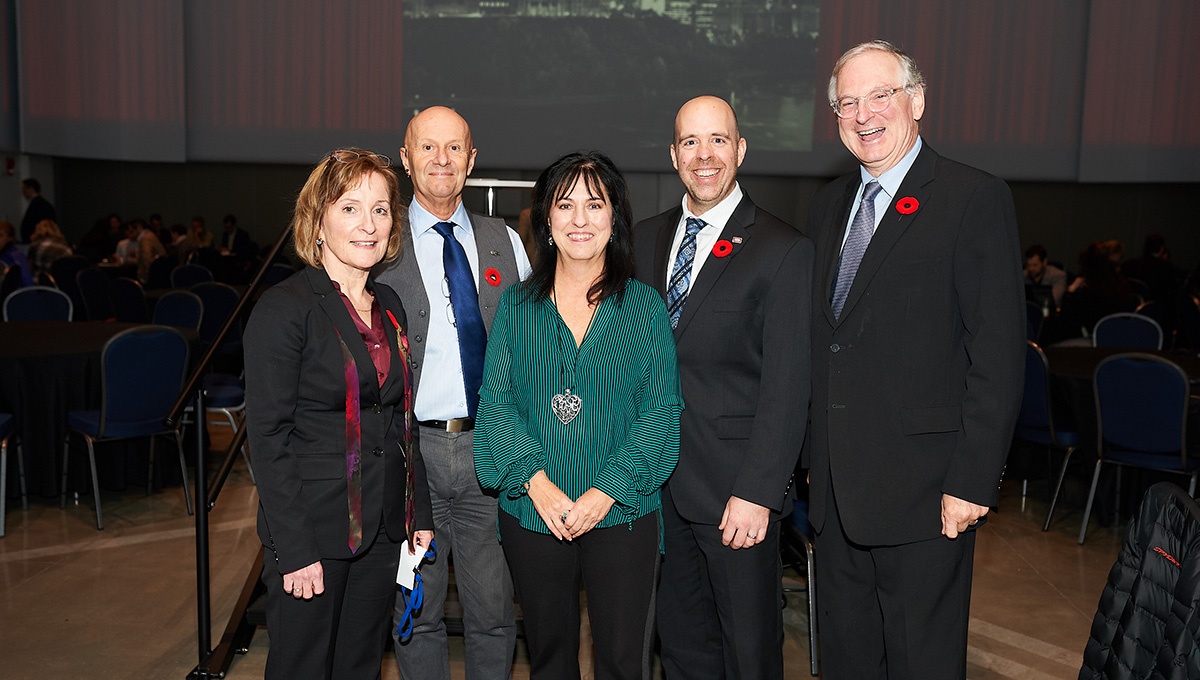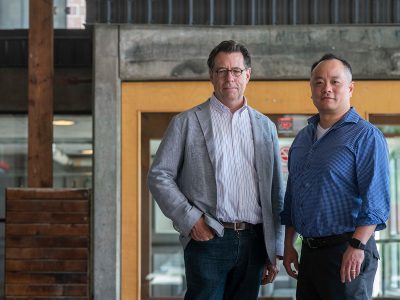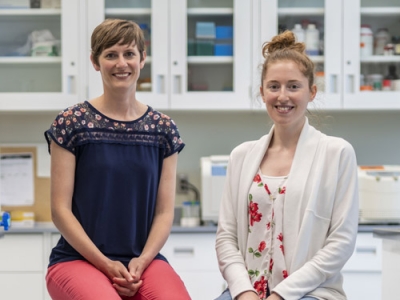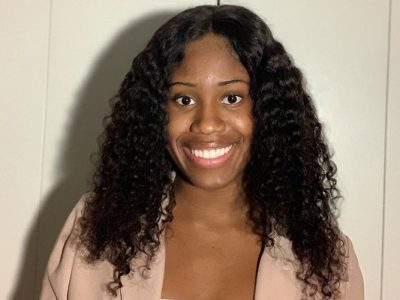By Dan Rubinstein
Photos by Josh Hotz
Faculty, executives, staff and students from Ottawa’s post-secondary institutions assembled at La Cité collégiale’s new Excentricité studio on Nov. 9, 2018 for an unprecedented gathering: the Education City education and innovation workshop.
Education City, a partnership between Carleton University, Algonquin College, La Cité and the University of Ottawa, is a collaborative attempt to develop more integrated “stackable” academic programs and shared research shops that will help find solutions to challenges faced by businesses, non-profits and governments.
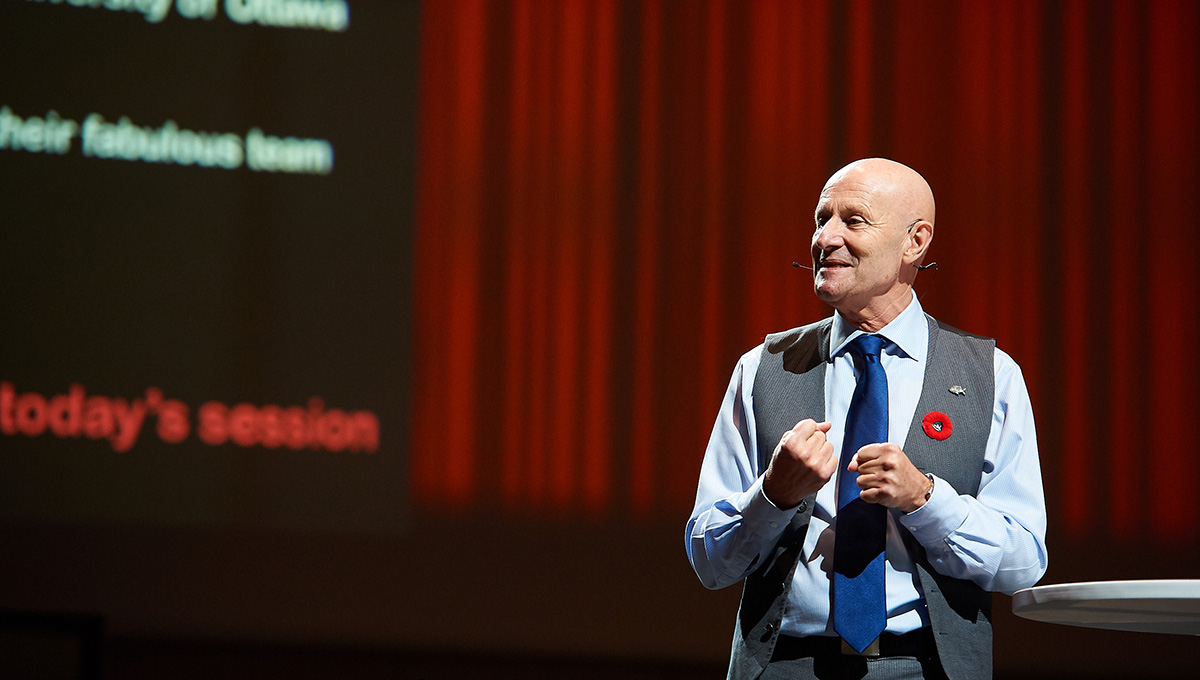
Former Carleton University interim president and Education City’s executive lead, Alastair Summerlee
Organizers expected 100 attendees but instead drew about 150 people, including representatives of l’Université Saint-Paul — a testament to the desire among educators to find ways to provide students with the flexibility they need to thrive in a world where traditional forms of employment are changing rapidly and dramatically.
“Nothing that will happen today will be traditional,” La Cité President Lise Bourgeois said in opening remarks.
“Our primary task today is really simple — can we put on paper educational innovations that we can really implement?” asked Alastair Summerlee, Carleton’s former interim president and Education City’s executive lead.
Summerlee noted that Ontario’s Ministry of Training, Colleges and Universities supported the pilot initiative with $800,000 over two years and, if it proves successful, the provincial government is open to providing base funding to keep it going.
Education City’s partners are already working together on the $5-million David C. Onley Initiative for Employment and Enterprise Development aimed at developing knowledge, resources and tools to help students with disabilities advance their careers. Its ultimate goal is to reach the point where graduates with disabilities are employed at the same rate as the general population.
“We have to ensure that our graduates are flexible enough to work in tomorrow’s workplace,” said Summerlee. “At the moment, our siloed systems are not necessarily supporting that.”
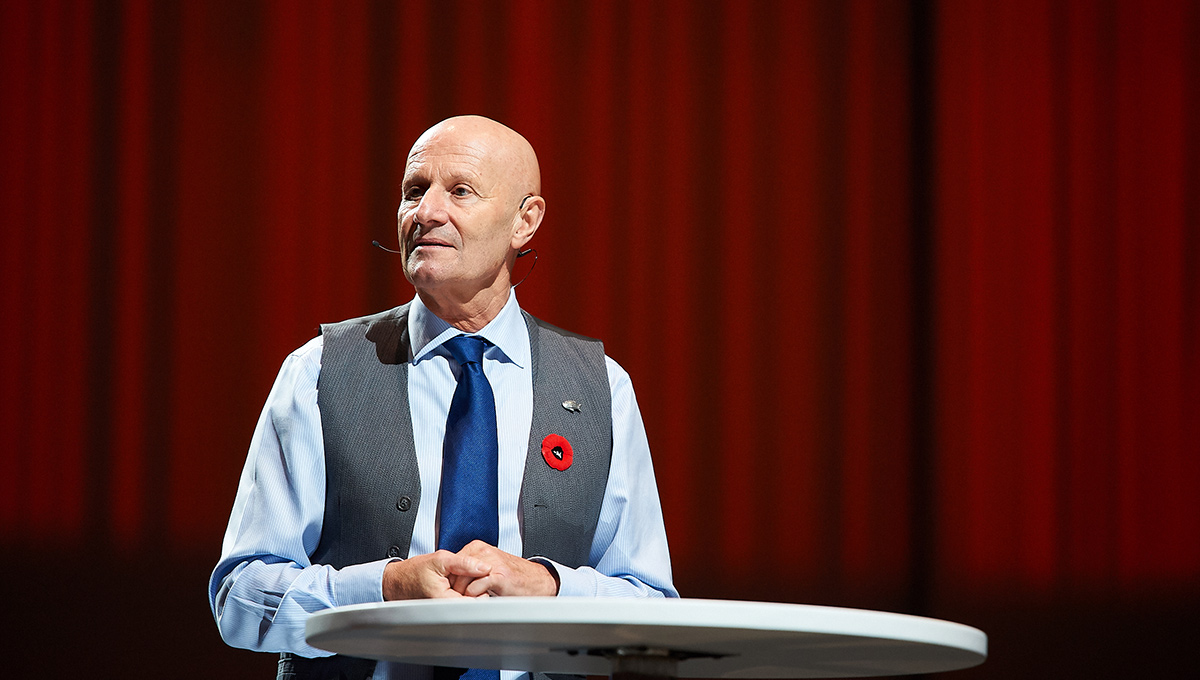
Defining Expectations
Summerlee told attendees about a survey he conducted near the end of his final term as president at the University of Guelph. He asked a cross-section of students to identify phrases that define the expectations they have for their degrees.
Phrases such as “liberalize society” (create understanding and inquiring minds, appreciate culture and humanity, protect freedom of expression, value tolerance and diversity), “become part of society’s conscience” (promote social justice, engage in public service, develop moral purpose, foster social mobility) and “advance ideas” (do fundamental and applied research, nurture entrepreneurism, commercialize ideas and inventions) came to mind.
More Interesting Reads
Nobody talked about training to prepare students to get jobs. As one student said to Summerlee: “We don’t know what kind of jobs there will be in the future. How would you know?”
“Students understand that their future will involve flexibility,” said Summerlee.
“Their future will involve being humans in a world that they’ll be able to adapt to.”
Colleges and universities are already effective at doing co-ops, internships, work placements, joint degree/diploma programs, online learning and workplace learning, such as Carleton’s unique Dev Degree computer science partnership with Shopify.
“But can we do better?” asked Summerlee. “I think we can do better.
“Imagine if we could harness the power of a college education and combine it with a university education and link that so much more clearly with workplace learning. We can change what we’re doing without changing all of the things we’re doing at the moment.”
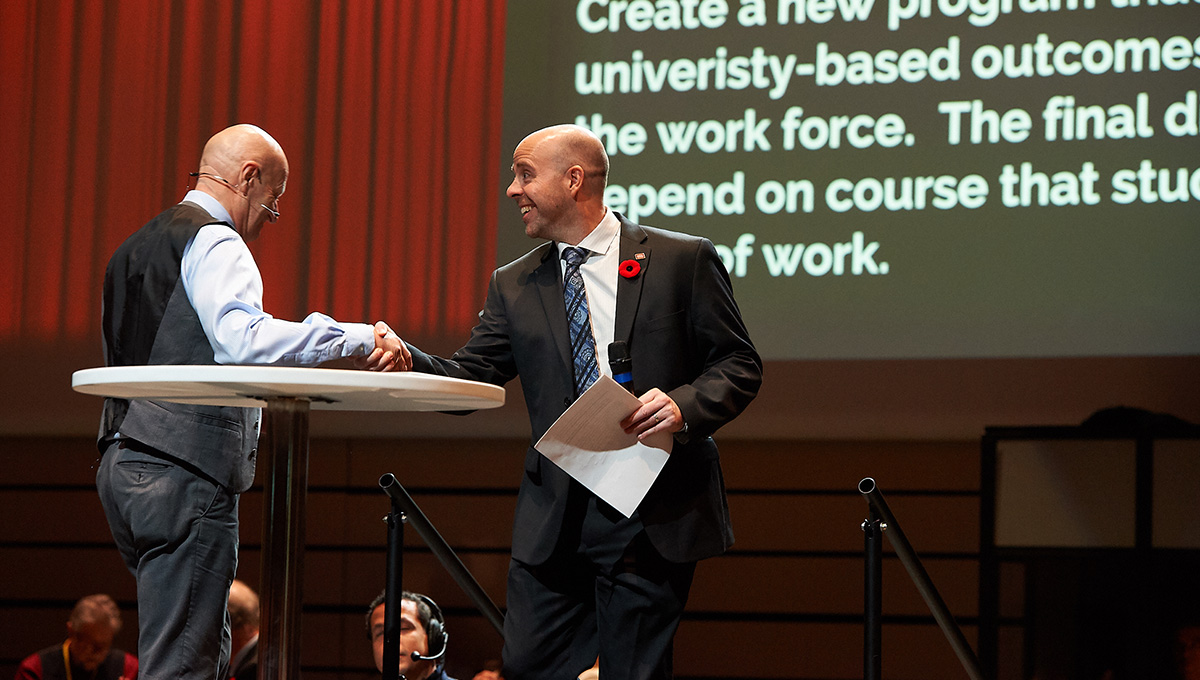
Education City Sessions
At one table during the morning breakout session, eight people — including several senior administrators from Carleton — talked about the movement they’re already seeing between colleges and universities among students who graduate from one institution and then attend another, and what can be done to facilitate more mobility while students are pursuing a degree or diploma.
The group also discussed the need for a better interface between the worlds of employment and post-secondary education; the need for more problem-based learning that exposes students to a range of disciplinary perspectives; the value of self-directed and lifelong learning; the need for global and international perspectives that allow graduates to transfer their skills to different countries; and the benefits of a “fluidity” that embraces people who want to study at a range of different phases of their lives.
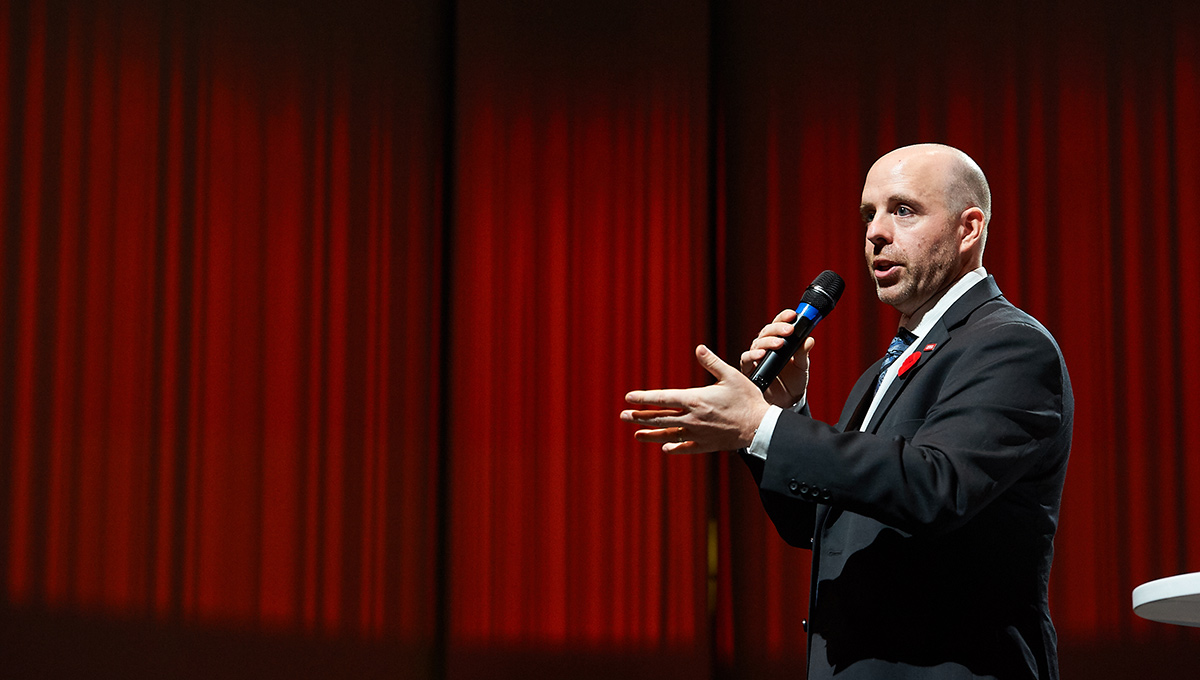
Carleton President Benoit-Antoine Bacon
“We don’t even know what jobs will be like in 10 to 15 years,” said one faculty leader, relating his experience at a recent conference on artificial intelligence and the future of engineering. “Because the form and nature of jobs is changing so quickly, it’s difficult to know what we’re training students for. The final frontier is very vague.”
During the afternoon breakout session, a suggestion arose for a guided, customized student pathway, potentially involving courses at any of the four participating institutions, with an adviser helping students decide which courses are the best fit for their needs and goals.
The same group discussed the idea of interdisciplinary, multi-institution programs built around common cores of knowledge — the fundamental skills and experience that students need to work in a range of related fields.
These approaches could be facilitated by some sort of post-secondary “passport,” or a pay-as-you-go system, which would allow students to chart their own paths.
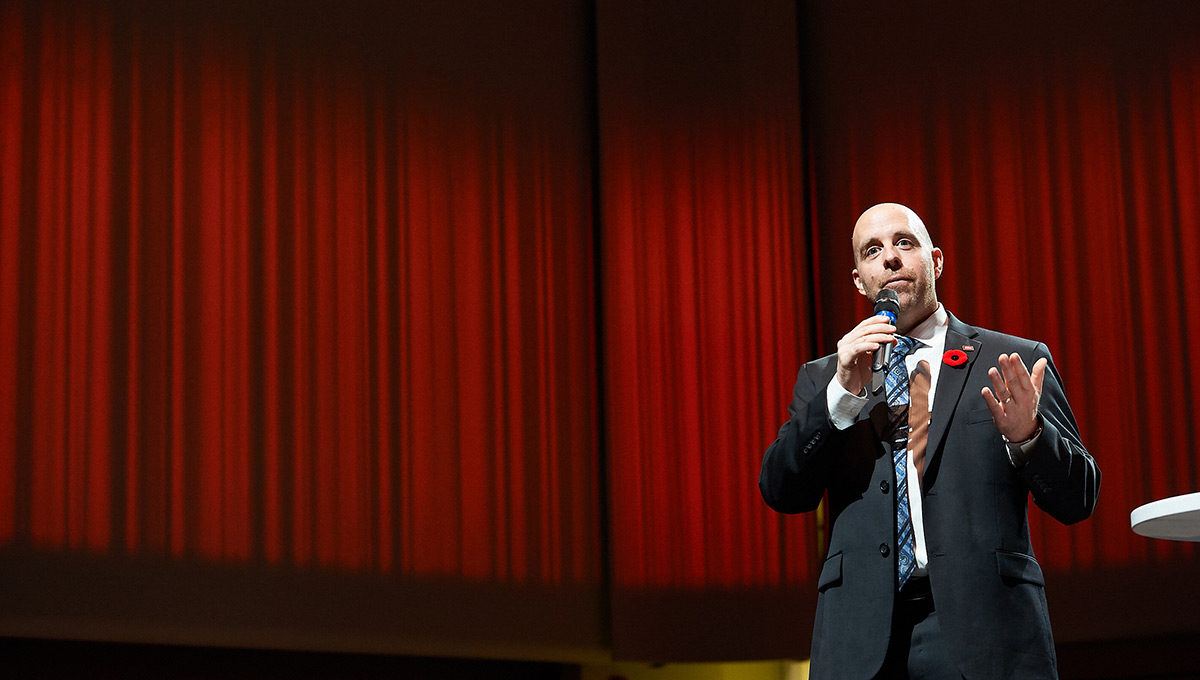
Architects of our Future
In addition to La Cité’s Lise Bourgeois, Carleton President Benoit-Antoine Bacon, University of Ottawa President Jacques Frémont and Algonquin President Cheryl Jensen all spoke at the workshop.
Jensen noted that she’s worked in the college system since the 1980s and has seen a lot of successful partnerships between Algonquin and both Carleton and the University of Ottawa.
“But I’m challenging you today to think differently,” she said. “I’m challenging you to be the architects of our future.”
Frémont reiterated an axiom that he’s fond of sharing:
“No students, no teachers. No teachers, no research. So, never forget why students are here.”
Bacon, who delivered closing remarks, said “when I arrived at Carleton five months ago and learned about the colleges and universities working together, I said, ‘Wow!’
“Today demonstrates this is a full partnership between the institutions. Universities and colleges need to work together. The idea that we would be closed off from the community and each other is outdated.
“Over time, as these discussions continue, we have a real opportunity to leave a mark in Ottawa,” said Bacon, “and be leaders in this country for a more flexible approach to college and university education.”
